There's so much talk these days about what happens when people can or cannot be targeted with advertising, as individuals or cohorts. Making advertising relevant seems to be the goal but how much does it really matter and for whom? Encountering ads is inevitable, but are all the ads people see today even relevant to their interests and needs? What drives ad effectiveness?
To answer these questions, DISQO has conducted a study into ad relevance. From May 12 through May 15, 2020, we surveyed a selection of DISQO audience members to understand:
- Consumer interest in viewing relevant ads
- Relevance of typical ads seen
- Factors that determine ad relevance
- Consumer sentiment in relation to ads
How’d we get people to tell us what they think?
We ask permission and reward them for their time. The ad relevance study was conducted through the DISQO CX platform. It is a nationally representative sample of DISQO audience members within the U.S.. A total of 999 responses were collected over a four-day period, from May 12, 2020, through May 15, 2020.
What we heard
It’s universal: people overwhelmingly want to see ads that are relevant to them. Across most age groups and regions at least 80% of people said that they want the ads they see to be relevant to them. The outliers are the age group 65-74, but even with this group well above half - 72% — want ads to be relevant to them. People living in the Midwest also cared slightly less about ad relevance compared to those in the Western, Northeastern and Southern United States.
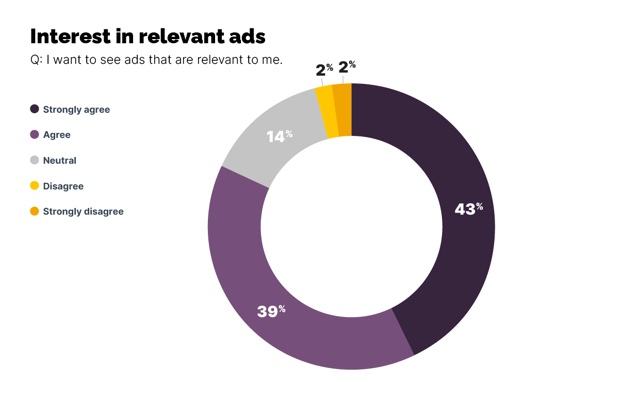
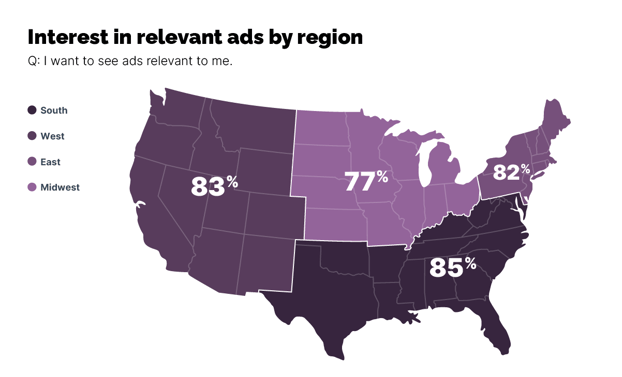
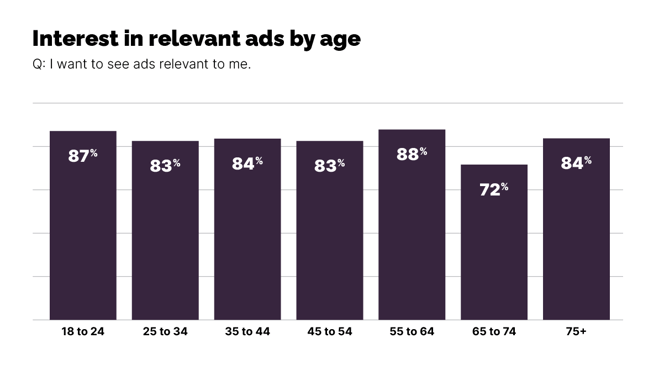
People want to see relevant ads, but that’s not always their reality. 82% of people agree that they would like to see relevant ads while only 54% claim that the ads they actually see are relevant to their interests.
Advertisers are messaging to consumer interest more often than meeting the shopper’s needs. 50% of people find that the ads they’ve recently seen are relevant to their interests. In comparison, only 45% agree that these ads are relevant to their needs.
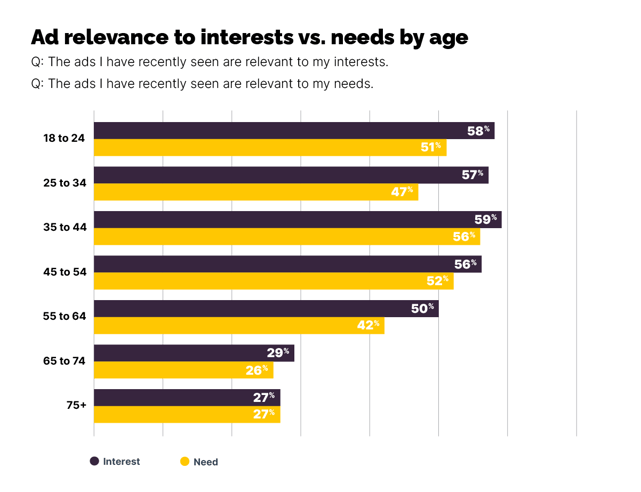
A majority find that at least half of the ads they see are relevant. 62% report that at least half of the ads they see are relevant. Still, another 34% claim only some are relevant and 4% state that none of the ads they see are relevant.
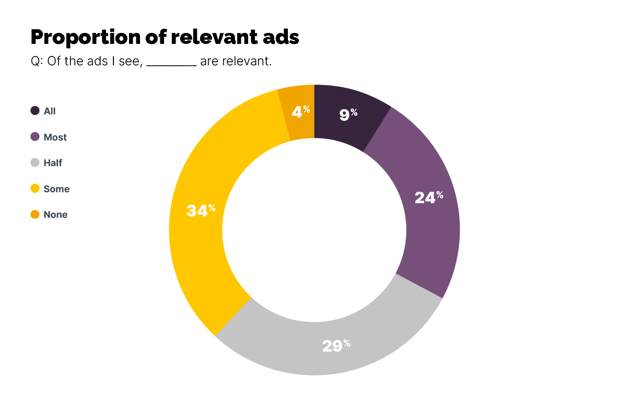
Ads that match viewers’ interests are classified as relevant. 42% of people claim an ad is relevant if it matches their interests. The other key factor is whether the ad satisfies a need (24%).
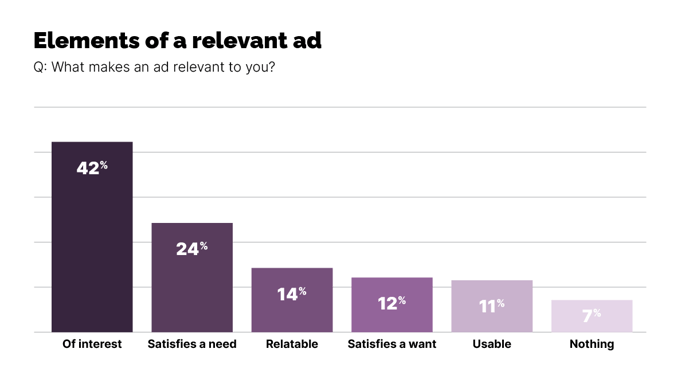
Uninteresting, unnecessary, and unrelatable ads are irrelevant. The top factor that determines whether an ad is relevant is if the viewer is interested in the topic of the ad itself (36%). Other elements include if the product or service isn’t needed (17%) and the ad is difficult to relate to (16%).
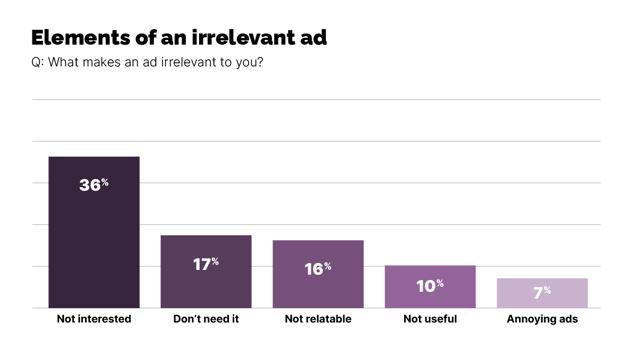
Relevance has a big upside, but irrelevance isn’t as damaging as you might think
People feel positive when seeing a relevant ad. 82% report feeling positive when seeing a relevant ad. Of this number, 30% report feeling extremely positive. Regionally, those in the Southern U.S. feel slightly more positive when seeing a relevant ad than their regional counterparts.
but...
Sentiment drops when ads are irrelevant. A majority of people (56%) report feeling negative when seeing irrelevant ads. Almost another third (32%) remain neutral while seeing ads that don’t match their interests.
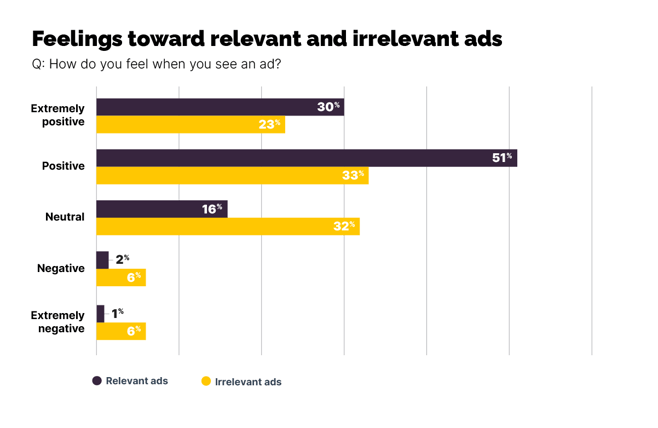
Overall advertisers need to do better with older audiences. At least half of the audience members in each age group we asked believe that most of the ads they see are relevant except for adults 65+, after age 65 that number drops to below 30%. Those in the age groups 65-74 and 74+ also reported seeing far fewer ads that are relevant to their needs and interests, said that a smaller percentage of total ads they saw were relevant, and also reported feeling more negatively toward ads that were irrelevant than their younger counterparts.
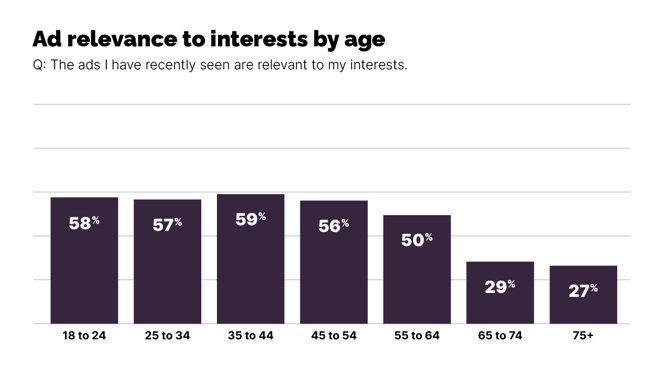
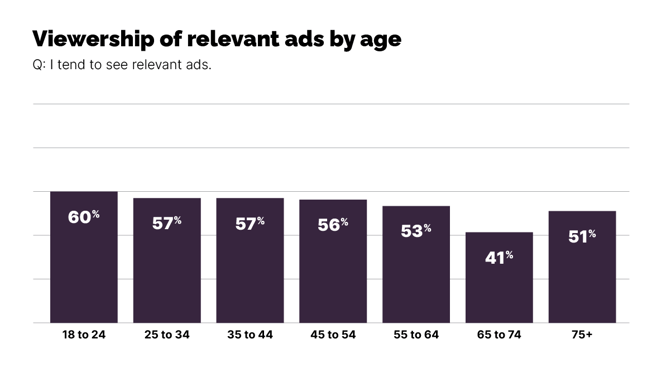
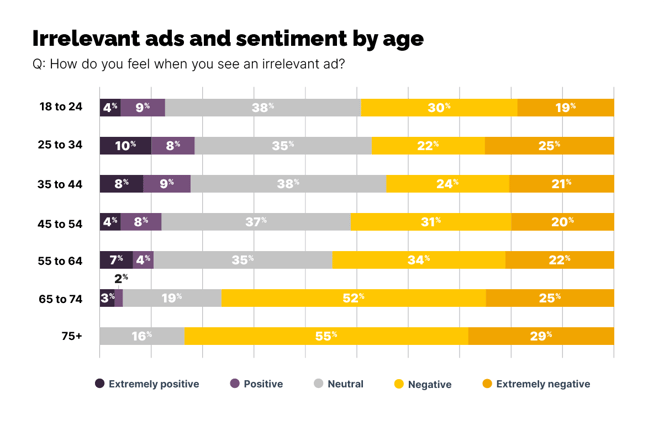
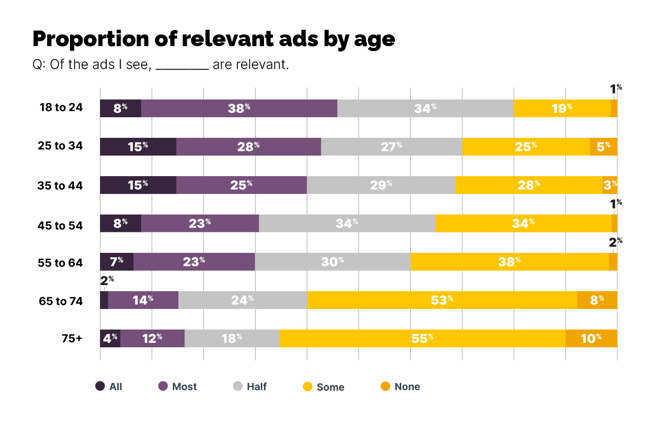
Want to run amazing research on advertising relevance or anything else consumers care about, including your brand and ads?
Reach out to us here.

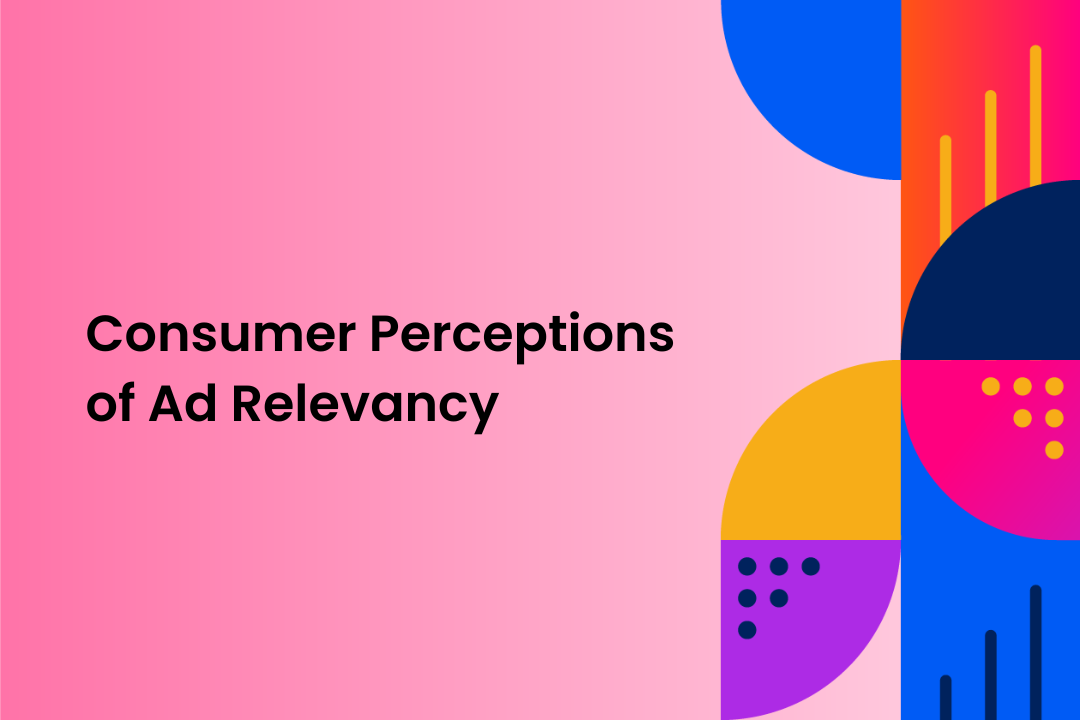
.png?width=352&name=Artboard%2029%20(2).png)

